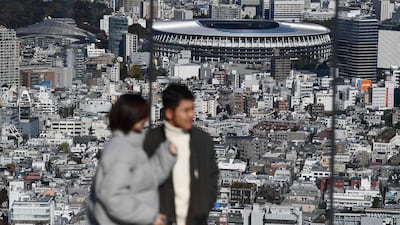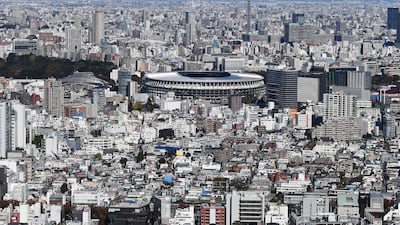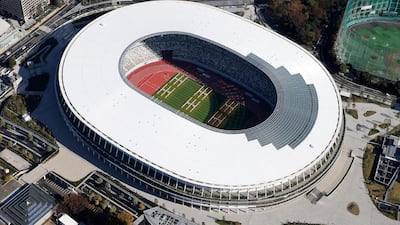IOC president Thomas Bach and local organisers are pushing back against reports that the postponed Tokyo Olympics will be cancelled.
Now set to start on July 23, the Tokyo Games were postponed 10 months ago, early in the coronavirus pandemic, and now the event appears threatened again.
British newspaper The Times, citing unidentified government sources, reported the games would have to be cancelled. It quoted an unidentified senior member of the ruling government coalition.
“No one wants to be the first to say so but the consensus is that it’s too difficult,” the source said. “Personally, I don’t think it’s going to happen.”
In a statement on Friday, the local organising committee did not address The Times story directly, but said the Olympics were going forward and had the support of Prime Minister Yoshihide Suga.
“All our delivery partners including the national government, the Tokyo Metropolitan Government, Tokyo 2020 Organising Committee, the IOC and the IPC [International Paralympic Committee] are fully focused on hosting the games this summer,” the statement said.
“We hope that daily life can return to normal as soon as possible, and we will continue to make every effort to prepare for a safe and secure games.”
Managu Sakai, the deputy chief cabinet secretary and an ally of the prime minister, also shot down the story.
“There is no such fact and we clearly deny [the report],”he said.
Tokyo Governor Yuriko Koike told her regular news conference on Friday that: “I’ve never heard such a thing”. She even suggested action against the newspaper. “Perhaps we should file a protest,” she said.
____________________________________________________
Gymnastics competition offers glimpse of what bio-secure Games could look like
____________________________________________________
The Times said Japan hoped to land the 2032 Olympics. The IOC has already awarded the 2024 Olympics to Paris and the 2028 version to Los Angeles.
The idea of Tokyo waiting a decade seems unlikely, given the cost of maintaining venues, negotiating new leases, and so forth. Tokyo has already spent about $25 billion to organise these Olympics, most of which is public money.
Several reports of a cancellation began to surface this month when the Japanese government put Tokyo and other prefectures under a state of emergency order to counter a surge of rising Covid-19 cases.
“We have at this moment, no reason whatsoever to believe that the Olympic Games in Tokyo will not open on the 23rd of July in the Olympic stadium in Tokyo,” Bach told the Japanese news agency Kyodo on Thursday. He also said there is “no Plan B”.
Senior International Olympic Committee member Richard Pound said earlier in the week that the Olympics may be held largely without fans, making it a mostly television event.
The Switzerland-based IOC gets 73 per cent of its income from selling broadcast rights and has seen its main revenue source stalled by the Olympic postponement. A largely TV-only event would suit the IOC better than a cancellation.
On Friday, Australian Prime Minister Scott Morrison said that any leader must put population’s health first, amid continued speculation about the Games.
“The situation in Japan, right now, in terms of the spread that’s occurred there more recently, is quite different to even when I was there in November,” he said.
“Any prime minister anywhere, has to put, I think, the health and safety of their populations first and what can be managed.
“But if [cancellation] were the case, I can only feel for them, and their circumstances. I could only extend our thoughts to them at that time.”




























